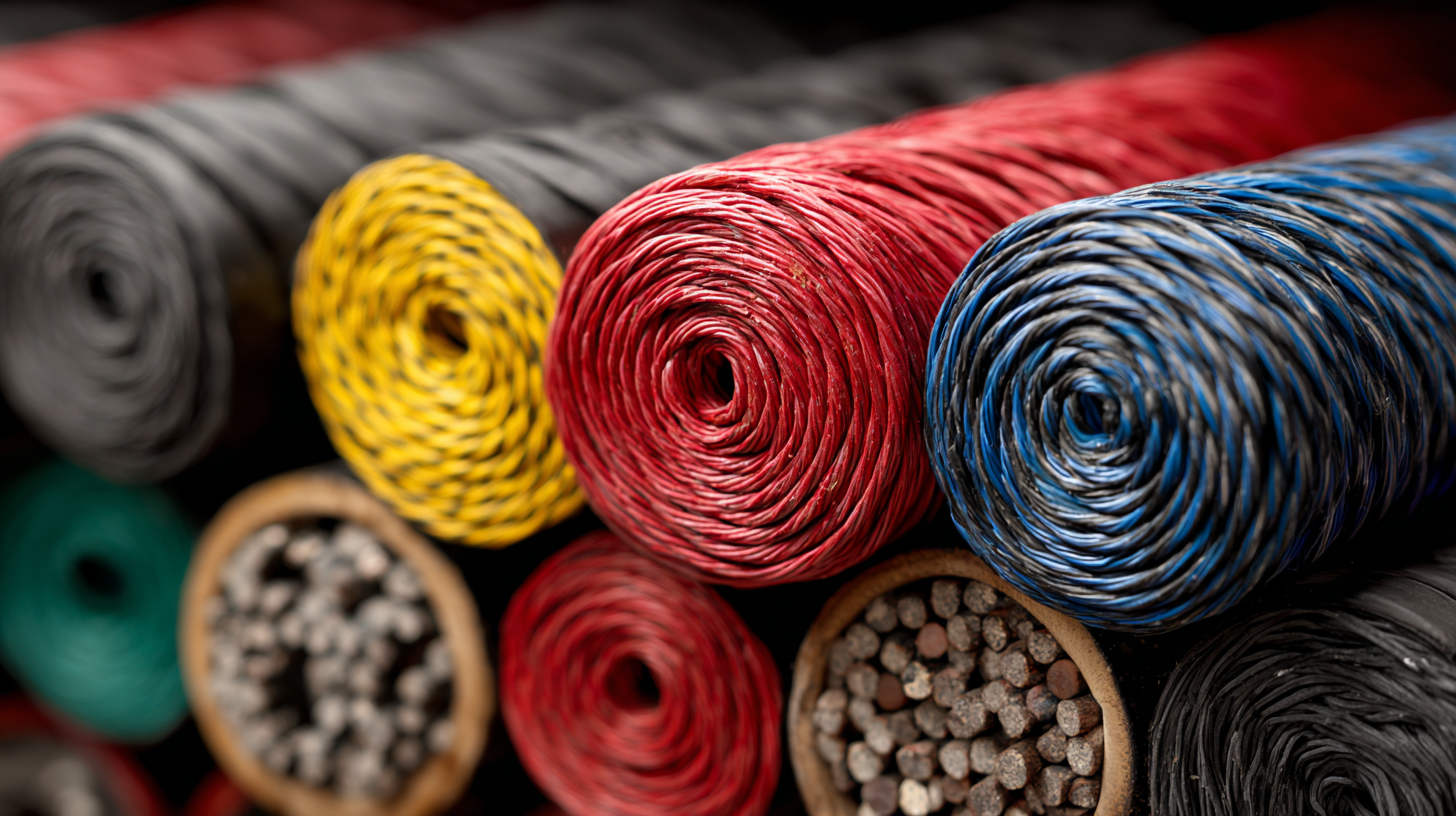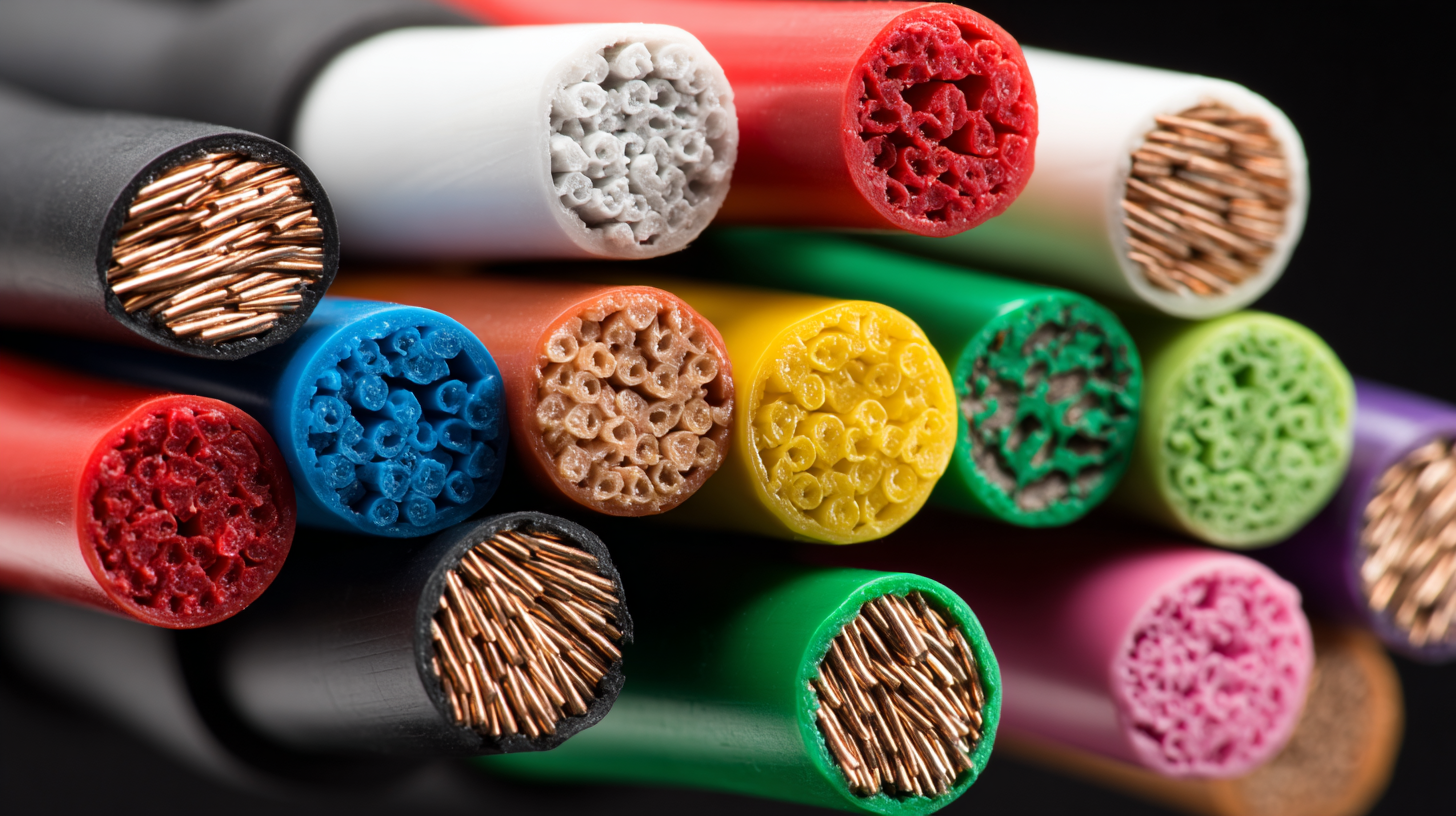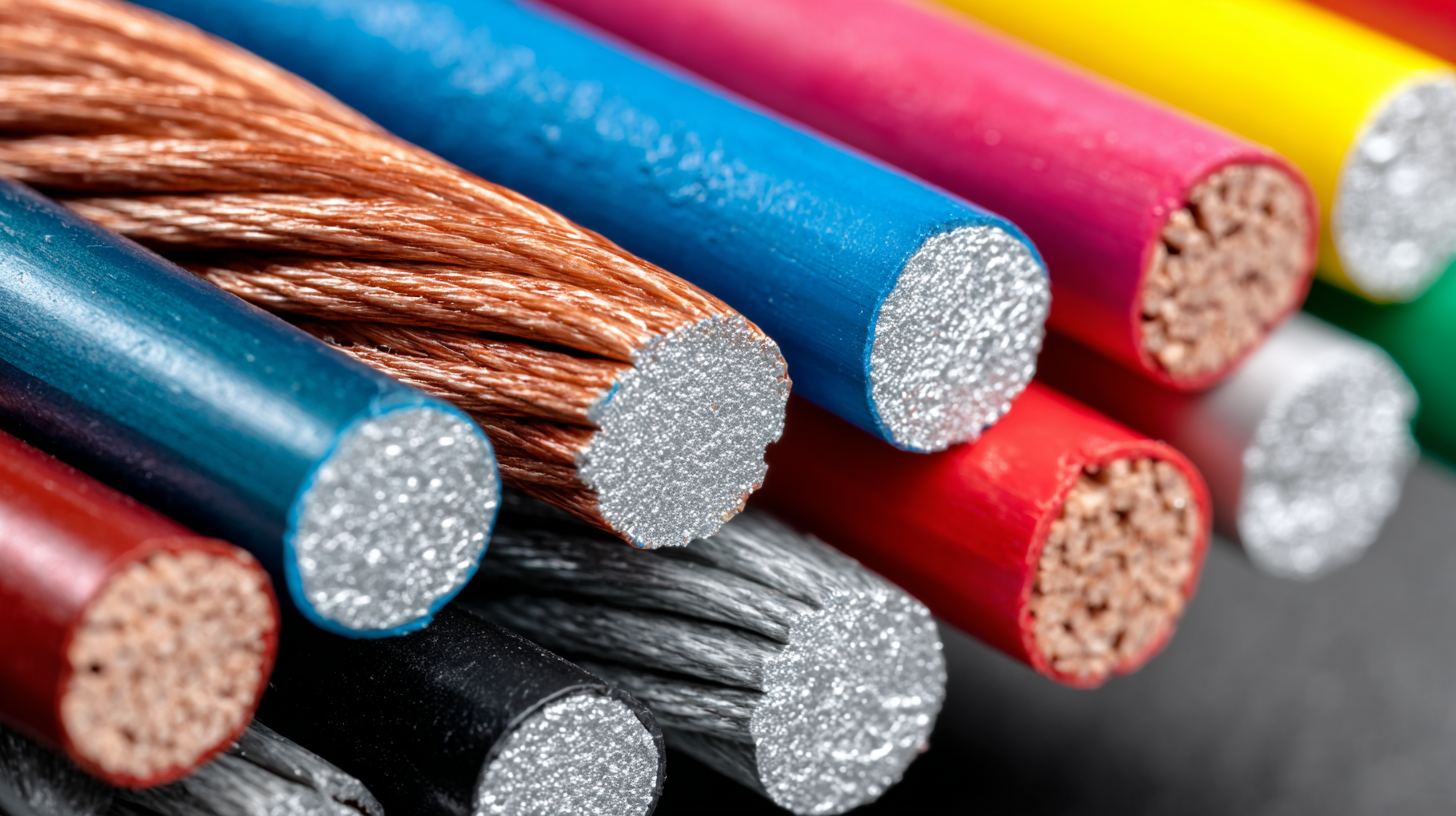
-
Home
-
Products
-
PVC Cable Material
-
Low Smoke Zero Halogen Cable Material
-
Cable material
-
Optical fiber cable
-
-
About Us
-
VR
-
News
-
Blog
-
Contact Us
Leave Your Message

In the ever-evolving landscape of electrical engineering, the choice of materials plays a crucial role in the performance and safety of wiring systems. Among these, PVC insulated cable material has emerged as a popular choice due to its unique blend of durability, flexibility, and cost-effectiveness. According to a report by Research and Markets, the global PVC cable market is projected to reach $126 billion by 2025, driven by rising demands in sectors such as construction and manufacturing. Notably, PVC insulated cables are not only resistant to moisture, chemicals, and abrasion but also offer enhanced electrical insulation properties, making them ideal for a multitude of applications. As we delve into the seven essential benefits of PVC insulated cable material, it becomes evident that understanding these advantages can lead to more informed decisions in various electrical projects, ultimately ensuring increased efficiency and safety.

PVC insulated cables are widely recognized for their versatility and reliability in various electrical applications. These cables feature a core conductor surrounded by a layer of polyvinyl chloride (PVC), which provides excellent insulation properties. One of the primary advantages of PVC insulation is its resistance to moisture and chemicals, making it suitable for installations in both indoor and outdoor environments. This characteristic helps to prevent electrical failures and prolong the lifespan of the cables, ensuring safety and efficiency in electrical systems.
In addition to its protective capabilities, PVC insulation is also known for its flexibility and ease of installation. Unlike other materials, PVC remains pliable even at lower temperatures, which simplifies the handling and installation process. Moreover, PVC is lightweight, allowing for easier transportation and manipulation during installation. The material's durability against abrasion and impact further enhances its practicality in construction and industrial settings. Understanding these benefits not only underscores the importance of choosing PVC insulated cables for electrical projects but also highlights the material's essential role in promoting safety and reliability across various applications.
PVC insulated cables are renowned for their remarkable durability and longevity, making them a superior choice for various electrical applications. One of the primary advantages of PVC insulation is its resistance to environmental factors. Unlike other materials that may degrade under UV exposure or extreme temperatures, PVC maintains its integrity, ensuring a reliable performance over time. This resilience helps reduce the frequency of repairs and replacements, ultimately lowering maintenance costs for both residential and industrial users.
Moreover, the longevity of PVC insulation extends the lifespan of electrical installations. With a robust structure that withstands abrasion and chemical exposure, PVC insulated cables can operate efficiently in demanding conditions. This means fewer disruptions in service and enhanced safety for users. As technology advances, the demand for materials that can endure harsh environments increases, and PVC insulation stands out as a trusted component that fulfills these criteria. Its durability not only benefits systems immediately but also ensures a sustainable solution for the future of electrical wiring.
| Benefit | Description | Impact |
|---|---|---|
| Durability | PVC insulation is resistant to abrasion and impacts, making it suitable for harsh environments. | Increased lifespan of cables in various applications. |
| Chemical Resistance | PVC can withstand exposure to many chemicals, oils, and solvents without degrading. | Enhanced safety and reliability in chemical environments. |
| Weather Resistance | Excellent performance under various weather conditions without losing insulation integrity. | Long-term outdoor applications are feasible without frequent replacements. |
| Flexibility | PVC insulation is flexible, allowing for easy installation in tight spaces. | Simplifies installation processes and cable management. |
| Cost-Effectiveness | Generally more affordable compared to other insulation materials. | Reduces overall project costs while maintaining quality. |
| Electrical Insulation | PVC provides excellent electrical insulation properties, ensuring safety. | Less risk of electrical hazards and failures. |
| Low Flammability | PVC is inherently resistant to flames, reducing fire risk. | Increased safety in electrical installations. |
The cost-effectiveness of PVC insulated cables extends beyond their low initial investment, making them a favored choice in various applications. Their durability and resistance to environmental factors ensure longevity, reducing the need for frequent replacements and maintenance. This reliability is especially critical in sectors like construction and automotive, where performance and safety are paramount. As industries increasingly prioritize budget-friendly solutions, PVC cables emerge as a practical option, enabling substantial savings over time.
Moreover, as the focus on renewable energy sources grows, the demand for efficient and cost-effective wiring solutions increases. PVC insulated cables are integral to the infrastructure of renewable technologies such as solar and wind energy systems. Their adaptability and efficient production processes align well with sustainable practices, providing the necessary support for infrastructural developments within the green energy sector. Additionally, the PVC stabilizer market is experiencing significant growth due to heightened demand across various industries, further illustrating the vital role of PVC materials in both traditional and emerging markets.
This chart illustrates the cost-effectiveness of PVC insulated cables across different applications, highlighting their significant advantages.
When it comes to electrical safety, the choice of insulation material is critical. PVC (Polyvinyl Chloride) insulated cables are known for their impressive fire-resistant properties, making them a preferred choice in various applications. According to the National Fire Protection Association (NFPA), electrical failures are a leading cause of home fires, underscoring the need for reliable insulation materials. PVC's ability to self-extinguish when exposed to flames significantly reduces the risk of fire propagation, a feature that is crucial in residential and commercial wiring.
Tip: Always ensure that your wiring projects comply with local safety regulations and standards. Using PVC insulated materials can not only enhance safety but also lower insurance costs due to reduced fire risk.
Moreover, PVC's excellent dielectric strength contributes to its fire-resistant capabilities. The Institute of Electrical and Electronics Engineers (IEEE) states that PVC insulated cables can withstand higher temperatures, minimizing the likelihood of electrical short-circuits that can ignite fires. With a flammability rating of V-0 in accordance with UL 94, PVC cables are well-regarded for their robust performance under extreme conditions.
Tip: When selecting cables, consider their fire resistance ratings and ensure that they meet the requirements for your specific application. Prioritizing safety can lead to long-term benefits and peace of mind.

When considering cable insulation materials, the environmental advantages of PVC (polyvinyl chloride) insulation are often overlooked, yet they play a pivotal role in promoting sustainability. PVC is not only durable but also highly resistant to moisture and UV rays, significantly extending the lifespan of electrical cables. This durability means that less frequent replacements are necessary, which, in turn, reduces waste and resource consumption. Moreover, PVC insulation is recyclable; when disposed of properly, it can be reprocessed and converted into new materials, contributing to a circular economy.

Another key environmental benefit of PVC insulation is its energy efficiency. The manufacturing process of PVC has seen significant advancements, leading to reduced energy consumption compared to other insulating materials. Additionally, its thermal insulating properties help in minimizing energy loss in electrical applications, further promoting energy efficiency in buildings and infrastructure. By choosing PVC insulated cables, consumers not only benefit from a reliable and robust material but also actively participate in environmentally responsible practices, making a meaningful impact on sustainability in the electrical industry.